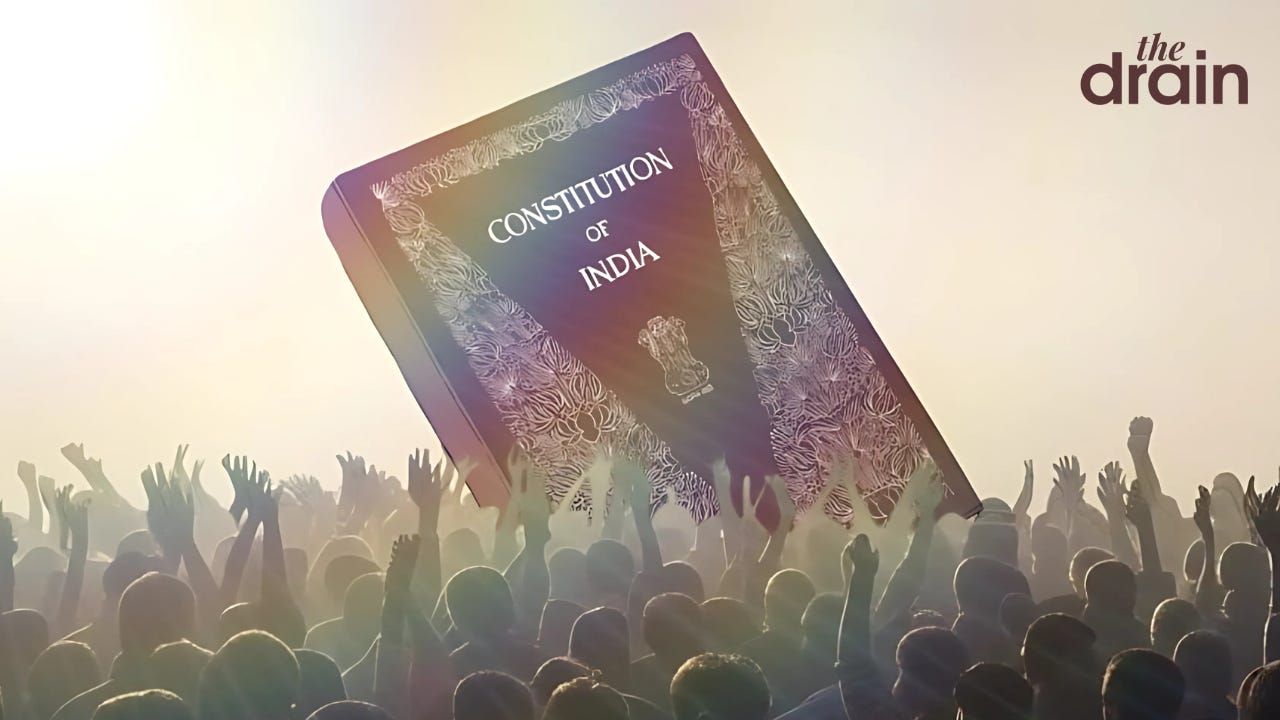
A medium-heighted man in his tailored suit stood at the podium, looking across the hall filled with people through his round glasses. With his calm but firm expression, he continued to speak:
On 26th January 1950, India will be an independent country. What would happen to her independence? Will she maintain her independence or will she lose it again? ... What perturbs me greatly is the fact that not only has India once before lost her independence, but she lost it by the infidelity and treachery of some of her own people.
Will history repeat itself? ... What would happen to her democratic Constitution? Will she be able to maintain it or will she lose it again?
He went on to talk about three critical dangers to Bharat's newly won independence and democracy — warnings that remain as relevant today as they were then. While the first and third warnings addressed other critical concerns, the second one forms the core of this article.
There is nothing wrong in being grateful to great men who have rendered life-long services to the country. But there are limits to gratefulness. ... This caution is far more necessary in the case of India than in the case of any other country. For in India, Bhakti, or what may be called the path of devotion or hero-worship, plays a part in its politics unequalled in magnitude by the part it plays in the politics of any other country in the world. Bhakti in religion may be a road to the salvation of the soul. But in politics, Bhakti or hero-worship is a sure road to degradation and eventual dictatorship.
—Bhimrao Ramji Ambedkar, at the Constituent Assembly of Bharat, 25 November, 1949
He who dedicated his life to challenging blind faith and promoting rational discourse has himself become an object of unquestioning devotion.
Ambedkar's worship, particularly among the Dalits, has ignored the core of his ideas. His vision of ensuring self-respect, education, and rationality for the people of Bharat has been overshadowed by mere a show of achieving these. His worshippers still remain largely chained to the conditions he sought to break them free of.
For political parties, this godification has been a boon. By chanting Ambedkar’s name, they appease Dalit voters without committing to any real change. Inaugurating statues, and releasing Ambedkar-themed manifestos are now routine election gimmicks. Ironically, the man who rejected caste-based and vote-bank politics is now at the centre of it.
The Constitution shepherded by Ambedkar, much like himself, has also been elevated to a sacred status in public discourse. It is hailed as the cornerstone of Bharatiya democracy, presented as untouchable and above critique. This is an attempt to hide the flaws and limitations of the document, preventing the reforms necessary for a truly vibrant society.
When nearly one-third of its provisions are directly copied from the Government of India Act, 1935, a colonial document, the Constitution was bound to continue with the quasi-federal and centralized governance model meant for a strong-arm control rather than a commoners-led structure. Ambedkar himself dismissed village-based self-governance, calling villages “sinks of localism”. His views were rooted in the challenges of his time, but the Constitution’s top-down approach has left states and local bodies with limited powers, stifling grassroots empowerment.
The reservation system embodies the biggest failure of the Constitution. Initially thought to be a temporary measure, it has become a permanent political tool that hides deeper structural inequalities. By locking up transformative social and economic principles into non-enforceable Directive Principles of State Policy, the Constitution has created an illusion of progressive intent. The document's design allowed successive governments to provide symbolic representation without implementing fundamental reforms in education, economic opportunities, and social mobility. Reservations served as a lollipop to the marginalised communities, preserving existing power structures while offering limited vertical mobility.
To honour Ambedkar’s legacy is not to revere him or his Constitution blindly but to engage critically with his ideas, adapt them to contemporary challenges, and move beyond the constraints of hero worship or sacredness.
Bharat cannot afford to let political Bhakti continue to erode its democratic foundations. The true homage to Ambedkar lies in dismantling the systems of oppression he fought against, ensuring that the liberty he championed is not traded for blind loyalty. Only then can the Ganatantra (Republic) truly reflect the interests of its gana (public).

.png)
.png)

Thank you for your comment